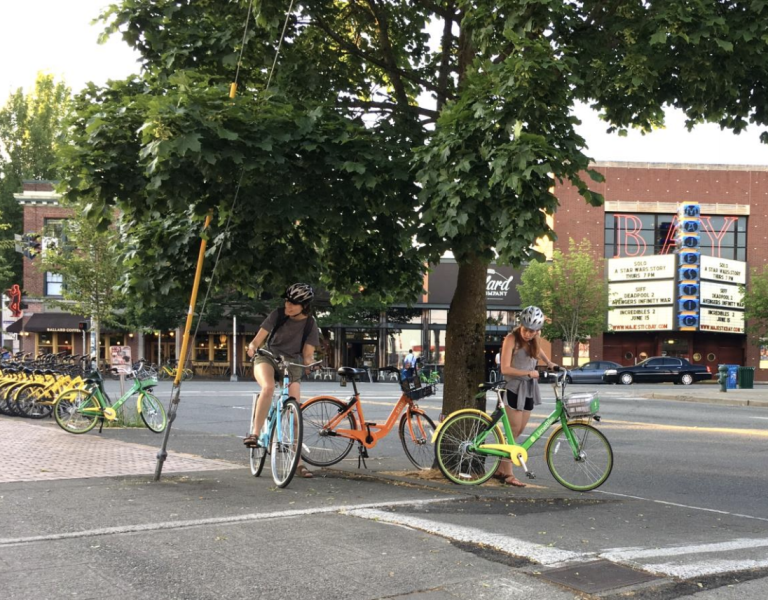The most interesting experiment with dockless bike-share in an American city right now is happening in Seattle. After its publicly-funded bike-share system, Pronto, went kaput without ever scaling up to significant size, last year three bike-share start-ups -- Lime, Spin, and Ofo -- introduced a combined fleet of 10,000 bikes in the city.
Seattle and Dallas are the only two American cities with dockless bike-share fleets of at least 10,000 bicycles. And only Seattle has the beginnings of a decent bike network and relatively high bicycling rates for the U.S. For these reasons, it's an interesting test case for the dockless bike-share services.
With the City Council preparing to grant long-term permits to the companies, Seattle DOT put together a summary of how they've performed so far [PDF].
Unfortunately, the trip data only covers the period from July through December. That raises some red flags. Bike-share trip data is easy to compile and share, so why are the five most recent months not included?
The available data shows that by their sheer volume of bikes, the dockless services are outperforming the tiny Pronto system. And in a survey, about a third of Seattle residents said they had given the bikes a try, which held steady regardless of race.
But the bikes aren't used as intensely as station-based bike-share systems of equivalent size. The average bike-share bike in Seattle is used for 0.85 trips each day. That's less than half the rate of Chicago's Divvy, which gets more trips out of 5,800 bikes than Seattle is getting out of 10,000 bikes. New York's Citi Bike, with 12,000 bikes, produced an average of 51,800 daily trips from July through December, more than five times the rate in Seattle.
Still, compared to Pronto and other small station-based systems -- which is all most American cities have been able to muster -- the dockless services are doing well. Patrick Taylor at the Urbanist writes that he's come to rely on them:
As an frequent bike rider who lives in Southeast Seattle, works in Central Seattle and spend a fair amount of time in North Seattle I have seen the growth of floating bikeshare in all parts of the city and witnessed it becoming an integral part of my own transportation. One of the most satisfying things for me to see is how often it is used by people in my neighborhood of Othello, which is not the most bike-friendly part of the city. I just opened the Lime app and there are seven bikes within a few blocks of me, including three e-bikes. In my experience it seems like it has increased the number of people on bikes and the types of people (by which I mean not spandex warriors, Day-Glo commuters, bike punks, or the usual suspects).
In China, dockless bike-share companies have increased bicycling mode share by flooding cities with hundreds of thousands of bikes. Seattle isn't close to that volume, and the city's bike-share manager told the Seattle Times in December that the companies aren't looking to expand much more due to the cost of maintaining larger fleets.
But if the dockless fleets do get bigger, survey data suggests the public will welcome it. Despite all the headlines about bike clutter, 74 percent of survey respondents said they have a favorable opinion of the services.
Another interesting takeaway: Few people are wearing helmets when they use bike-share, despite Seattle's helmet law. The city reports that only 24 percent of bike-share riders used helmets, and preliminary data from a University of Washington study shows no increase in head injuries.






